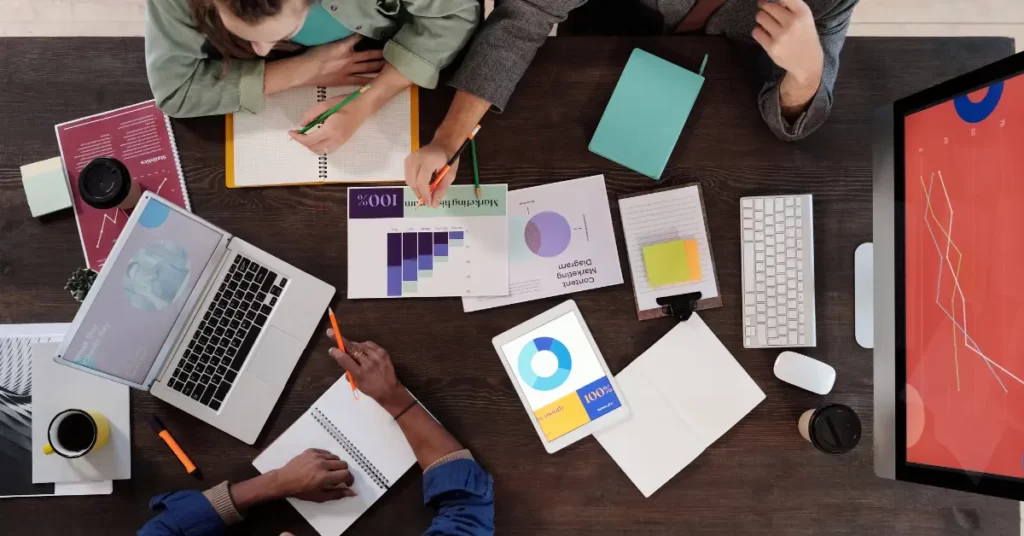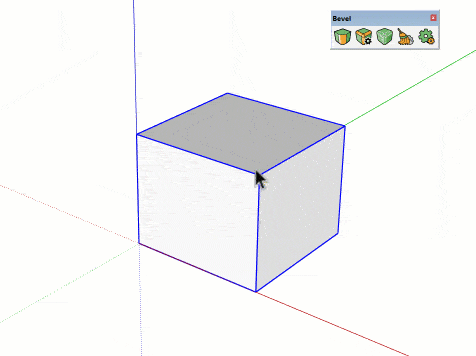In today’s digital age, effective collaboration is essential for successful project management. Notion, a versatile all-in-one workspace, offers a robust platform for collaborating with clients and team members. By implementing best practices and utilizing its powerful features, you can streamline your workflow, enhance productivity, and foster efficient communication. In this blog, we will explore some valuable tips and strategies to make the most of Notion’s collaboration capabilities.

Boosting Efficiency and Strengthening Collaboration: Unleashing the Full Potential of Notion for Client and Team Collaboration
- Set Up a Centralized Workspace:
Create a dedicated workspace in Notion to serve as a central hub for collaboration. This space can house project information, documents, tasks, and discussions, making it easily accessible to both clients and team members. Organize it intuitively, using nested pages, databases, and linked content for seamless navigation. - Define Roles and Permissions:
Clearly define roles and permissions within Notion to establish a structured collaboration environment. Assign appropriate access levels to clients and team members, ensuring they can contribute and view relevant information without compromising data integrity. - Utilize Shared Databases:
Leverage Notion’s shared databases to manage project-related information effectively. Create databases for tasks, timelines, feedback, and milestones, allowing everyone involved to access and update information in real time. Utilize customizable views, filters, and sorting options to focus on specific aspects and stay organized. - Implement Task Management Systems:
Track and assign tasks efficiently using Notion’s task management capabilities. Assign tasks to team members, set due dates, and use tags or labels to categorize them. With clear task visibility, everyone can stay on track and collaborate seamlessly, eliminating potential bottlenecks. - Foster Communication with Comments and Mentions:
Notion’s commenting and mentioning features enable contextual discussions and facilitate effective communication. Leave comments on specific tasks or sections, providing feedback and addressing queries. Use @mentions to notify specific individuals and involve them in relevant conversations. - Employ Integrations:
Extend Notion’s collaboration capabilities by integrating with other tools commonly used by your team. Connect calendars, communication platforms, or project management tools to streamline workflows and keep everyone informed about deadlines, updates, and discussions. - Leverage Templates:
Save time and standardize workflows by utilizing Notion’s template library. Create custom templates for different types of projects or workflows, ensuring consistency and enabling a quick start for new projects. Templates help maintain structure and guide collaborators throughout the process. - Establish Documentation and Knowledge Base:
Create a knowledge base within Notion to document project-related information, guidelines, and resources. This centralized repository ensures that crucial information is readily available to clients and team members, reducing the need for repetitive explanations and improving efficiency. - Regularly Review and Update:
Collaboration is an iterative process, and it’s essential to regularly review and update your Notion workspace. Conduct periodic check-ins to ensure everyone is aligned and update information as the project progresses. This practice helps maintain clarity and prevents miscommunication. - Encourage Feedback and Iteration:
Lastly, foster a culture of feedback and iteration within your collaboration process. Encourage clients and team members to provide constructive feedback, share insights, and suggest improvements. Notion’s collaborative environment makes it easy to incorporate feedback and iterate on ideas.
- Maintain Version Control:
To ensure smooth collaboration and avoid confusion, implement version control practices in Notion. Use page history to track changes and revisions, allowing you to revert to previous versions if needed. This helps maintain an accurate record of the project’s evolution and provides transparency for all stakeholders. - Use Inline Mentions and Notifications:
Notion’s inline mentions and notifications feature can greatly enhance collaboration. Use @mentions within texts or documents to draw someone’s attention to specific content or assign them a task. Notifications will alert team members of any updates or changes, keeping everyone in the loop and promoting timely responses. - Leverage Database Relations and Linked Content:
Take advantage of Notion’s database relations and linked content features to establish connections between different sections or pages. This allows for seamless cross-referencing and ensures that information is consistently updated across multiple areas. By creating these links, you can easily navigate through complex projects and maintain data integrity. - Collaborate in Real Time:
Notion enables real-time collaboration, allowing multiple users to work on a document simultaneously. Leverage this feature during meetings, brainstorming sessions, or content creation, ensuring that everyone can actively contribute and see changes happening in real time. Real-time collaboration fosters engagement and enhances teamwork. - Set Clear Expectations and Deadlines:
Effective collaboration relies on clear expectations and deadlines. Clearly communicate project milestones, deliverables, and timelines to clients and team members. Use Notion’s calendar view or timeline feature to visually represent deadlines and keep everyone informed about upcoming tasks. This promotes accountability and ensures that everyone is on the same page. - Provide Training and Support:
Notion’s extensive features may require some learning for new users. Offer training and support to clients and team members to help them navigate and utilize Notion effectively. Provide resources such as tutorials, guides, or video demonstrations to assist them in maximizing the benefits of the platform’s collaboration capabilities. - Regularly Sync and Back Up Data:
To safeguard your collaboration efforts, regularly sync and back up your Notion data. Notion provides options to export your workspace, ensuring that you have a backup copy in case of unforeseen circumstances. This precautionary measure helps protect your valuable project data and allows for seamless recovery if needed. - Encourage Remote Collaboration:
Notion’s cloud-based nature makes it ideal for remote collaboration. Encourage clients and team members to embrace remote work by utilizing Notion’s collaboration features. With the ability to access and update information from anywhere, you can maintain productivity and engagement, regardless of physical location. - Seek Feedback and Continuously Improve:
Collaboration is an ongoing process that can always be improved. Seek feedback from clients and team members on their experience using Notion for collaboration. Actively listen to their suggestions and implement necessary improvements to optimize the collaboration workflow. By embracing a culture of continuous improvement, you can enhance collaboration effectiveness over time. - Celebrate Achievements and Milestones:
Finally, don’t forget to celebrate achievements and milestones reached during the collaboration process. Recognize the contributions of clients and team members, and acknowledge their efforts and successes. Notion’s workspace allows you to create dedicated sections or pages for celebration, fostering a positive and motivating atmosphere.
Conclusion:
Collaborating with clients and team members in Notion can significantly enhance productivity and streamline project management. By implementing these best practices and tips, you can leverage Notion’s powerful features to create a cohesive and efficient collaboration environment. From setting up a centralized workspace to fostering real-time communication and iteration, Notion offers a versatile platform to optimize your collaboration efforts. Embrace these strategies and watch as your collaboration process becomes seamless, productive, and successful.












